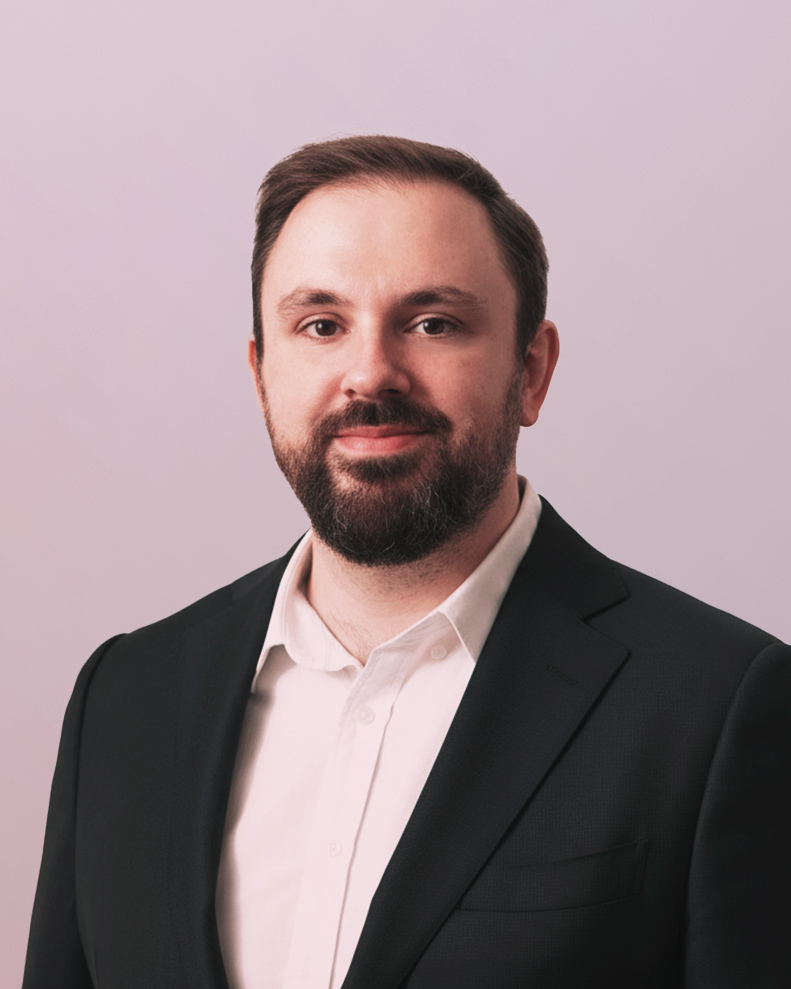Thomas Geoffray leads our Energy Practice at OWT. With more than a decade of experience across the European energy sector, he has worked on projects spanning electricity distribution, gas networks, Customer operations digitalization, smart metering, and IoT innovation. Before joining OWT, Thomas spent 11 years at a leading global technology consulting firm, where he managed large-scale programs and international teams for major energy providers. He holds an engineering degree in Information Technology from École Centrale d’Électronique in Paris, France.
 Back
BackEnergy
The platform that streamlines interactions between DSOs and LECs
The introduction of Local Electricity Communities (LECs) imposes a heavy administrative burden, primarily impacting Distribution System Operators (DSOs). OWT offers a solution to streamline the LEC administration, automate processes, and simplify data exchange between LECs administrators and DSOs.
Contact usA new digital challenge for creating and managing communities.
The entry into force of the Federal Act on a Secure Electricity Supply Based on Renewable Energy Sources will enable the creation of LECs. This represents a major step towards more sustainable, decentralised energy production and consumption. These are due to be set up in early 2026, paving the way for citizen-driven energy transition and local energy developments.
LECs creations, changes, verification that technical criteria are met, and energy allocation rules are new processes to be defined and digitized. These processes are specific to LECs and differ from the current self-consumption solutions. Moreover, they require a strong integration with the DSO IT system - an area where OWT excels!
 LEC creation and changes
LEC creation and changes
- Current processes for self-consumption solutions are often based on PDF forms shared via email. Eventually DSOs will have to install smart meters and change their IT systems to model the LEC and enable proper billing. If LECs are to be a success, the new processes need to be seamless, so that LEC creation requests are processed efficiently and within the deadlines defined by law.
 Verification of technical criteria
Verification of technical criteria
- LECs must meet some technical requirements, starting with the geographical location of grid connection points of LEC participants. However LEC members to not know the grid topology. Since DSOs are required by law to cooperate in the LEC creation process, it is advisable that a subset of the grid topology is published to streamline this process and empower LEC participants.
 Energy allocation calculations between LEC participants
Energy allocation calculations between LEC participants
- The regulation defines the billing principles within the LEC when the DSO is responsible for billing LEC members, but LECs can also organize themselves so that they bill their members. The DSO IT system must take this complexity into account and allow for all possible scenarios.
 Data exchange between the DSO and the LEC for compliant billing
Data exchange between the DSO and the LEC for compliant billing
- The DSO is obliged by law to make data available to LECs. This requires an efficient data exchange process, and smart and secure integration with the DSO IT system.
A single web platform to meet the requirements of the new regulation
Our solution combines three main advantages. First and foremost, it complies with the new LEC regulation. Moreover, it provides its users (DSO staff as well as LEC administrators) with an outstanding digital experience. And finally, it perfectly integrates with the DSO IT systems to automate processes end-to-end.
How we help our clients
Agnostic technology
We integrate easily into your existing IT ecosystem: metering chain (HES, MDM, EDM), billing system (SAP, Innosolv, other), or geographical information system (GIS).
100% Swiss experience
We uniquely combine our knowledge of the Swiss energy market, our understanding of the challenges faced by DSOs in adapting to regulatory change, and our UX expertise to deliver a platform that is perfectly tailored to local needs and regulations.
Scalable platform
Our solution is designed for LEC administrators and DSOs, primarily to meet their need to comply effectively with new legal obligations. It is also scalable, enabling energy suppliers to offer new services to prosumer members of LECs.
Benefits
Key benefits and functionalities for the DSO
 LEC creation requests
LEC creation requests
- Digitalization and automation of the CEL creation forms and request process
- Sharing of useful grid data with prosumers to simplify LEC creations
- Automation of the verification of technical criteria to validate LEC creation requests
- Requests process monitoring and dashboards
- Management of deadlines
 LEC administration
LEC administration
- Management of master data exchanges throughout the life cycle of the LEC, from creation to deletion.
 Energy data management
Energy data management
- Import consumption data from LEC participants
- Calculate energy allocations
 Calculation of billing determinants
Calculation of billing determinants
- Calculation of billing determinants and transmission to the DSO billing system
Key benefits and functionalities for LECs administrators

Free, comprehensive, valid throughout Switzerland
The portal is free for LEC administrators. It considerably simplifies LEC management being the single interface to the DSO, all over through Switzerland.

Simplified administration of LECs
The management of the LEC is entirely centralised and digitised from start to finish. This includes all stages: initial creation, addition of new members, move-out and move-in, changes to PV generation, installation of batteries, dismantlement of the LEC, compliance with regulatory deadlines, and changes to internal billing rules.

Your data, at all times, in complete security
LEC data belongs exclusively to its members. Except for information which DSO must have access to, it is crucial that data privacy is assured, be it administrative data, energy consumption data or billing data. This data is available securely and at any time via a user-friendly interface.
Get in touch with our expert

Head of Energy


